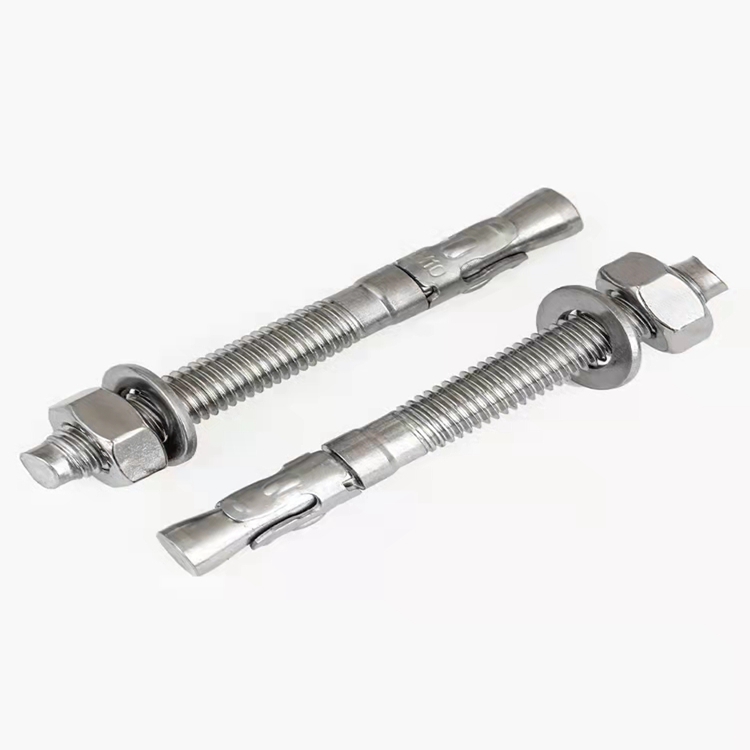Stud Bolt Production Company Specializing in High-Quality Fasteners for Diverse Industries
Oct . 15, 2024 21:32 Back to list
Stud Bolt Production Company Specializing in High-Quality Fasteners for Diverse Industries
The Evolution and Importance of Stud Bolt Manufacturing
Manufacturing has always been a crucial segment of the global economy, especially in specialized sectors such as fastening technologies. Among the various components that play a vital role in construction, automotive, and manufacturing industries, stud bolts are essential. Stud bolts, characterized by their threaded design, offer enhanced strength and precision in applications that require robust fastening solutions. In this article, we will explore the significance of stud bolt manufacturing, the processes involved, and its impact on various industries.
What are Stud Bolts?
Stud bolts are elongated fasteners with threads on both ends and a smooth shaft in the middle. They are primarily used in conjunction with nuts and can be found in numerous industrial applications. The versatility of stud bolts allows them to be utilized in a wide range of environments, from high-pressure systems in petrochemical plants to heavy machinery components in manufacturing facilities. Unlike traditional bolts, stud bolts provide a greater surface area for load distribution, which enhances their performance under stress.
The Importance of Quality Manufacturing
The quality of stud bolts directly impacts the reliability and safety of the structures and machines that utilize them. Poorly manufactured stud bolts can lead to failures, which may result in catastrophic consequences, financial loss, and safety hazards. Thus, a focus on high-quality manufacturing practices is essential in the stud bolt industry. Companies must adhere to stringent industry standards and regulations to ensure that their products meet specific requirements for strength, corrosion resistance, and overall durability.
Manufacturing Processes
Stud bolt manufacturing involves multiple stages, each designed to meet stringent quality standards
. Here are some of the key processes involved in manufacturing stud bolts1. Raw Material Selection High-quality steel or alloy is chosen for its mechanical properties, including tensile strength and corrosion resistance. The selection of material can significantly affect the performance of the final product.
2. Forging The chosen material is subjected to forging, a process that involves shaping the metal under high heat and pressure. This enhances the material's grain structure, resulting in improved strength.
stud bolt manufacturing company

3. Machining After forging, the studs undergo machining processes, where the threads are precisely cut to ensure compatibility with nuts and other components. This step is crucial for achieving the correct fit and functionality.
4. Heat Treatment To further enhance strength and toughness, stud bolts undergo heat treatment. This controlled heating and cooling process adjusts the material's microstructure, improving its mechanical properties.
5. Surface Treatment Finally, applying a protective coating or finish helps prevent corrosion and wear, increasing the longevity of the stud bolts.
Innovations in Stud Bolt Manufacturing
In recent years, advancements in technology have significantly transformed the stud bolt manufacturing process. Automated machinery and computer-aided design (CAD) systems have improved precision and efficiency. Additionally, the use of advanced materials such as stainless steel and specialty alloys has expanded the capabilities and applications of stud bolts.
Applications Across Industries
Stud bolts are integral to numerous sectors. In the construction industry, they are commonly used to secure structural elements like beams and columns, ensuring the stability of buildings and bridges. In the automotive sector, they play a critical role in assembly lines and engine components. Moreover, the oil and gas industry relies heavily on stud bolts to maintain the integrity of pipelines and pressure vessels, where reliability is paramount.
Conclusion
The stud bolt manufacturing industry is a vital component of modern engineering and construction, providing essential fasteners that contribute to the safety and efficiency of various applications. With ongoing innovations and an unwavering commitment to quality, stud bolt manufacturers continue to play a critical role in supporting the global economy and ensuring the performance of essential infrastructure and machinery. As industries evolve, the need for high-quality stud bolts will only increase, making the future of this manufacturing sector promising and essential.
Latest news
-
High-Quality Panel Stud Bolt Reliable Panel Stud Bolt Factory & Suppliers
NewsJul.08,2025
-
High-Precision Fine Thread Locknuts Manufacturer & Supplier Custom Solutions
NewsJul.08,2025
-
PH Imperial Stud Bolt – High Strength Fasteners from Leading Supplier & Factory
NewsJul.07,2025
-
High-Quality Allen Wrench Bolts Leading Factory, Company & Suppliers
NewsJul.07,2025
-
Wholesale Ball Stud Bolt - High Quality Supplier & Factory Price Reliable Wholesale Ball Stud Bolt Company
NewsJul.06,2025
-
High-Strength Alloy Bolts Manufacturer & Supplier Quality Alloy Fasteners Factory
NewsJul.06,2025
